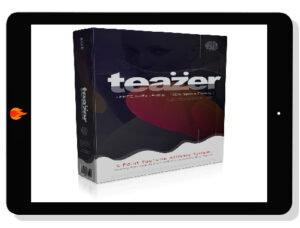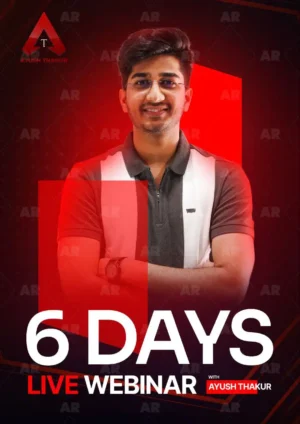BlockChain – Profitable Flashloans with Code, Create your own Token + 12 other blockchain courses
Description of Profitable Flashloans with Code, Create your own Token + 12 other blockchain courses
How to get your first Blockchain developer job?
You need to know how to build decentralized applications on the Blockchain (Dapps)
And you need to convince company that you know 1.
Most people think that you need to start from
and move your way to
But that’s not the most effective way…after all, what’s the point of studying all this Blockchain stuff if you can’t monetize it?
So… let’s reverse engineer the problem, and start from 2.
The good news is that there IS a simple method to convince Blockchain companies to hire you…
However, most Blockchain development course won’t teach you this…
The solution, my friend, is to…
Build a portfolio of Blockchain applications (Dapps)
There is nothing more effective that a portfolio of projects to demonstrate your technical skills.
No need to over-optimize your CV, or exaggerate your past achievements. This does not work. Just show your code.
Ok great, but… what should you build?
A good portfolio is like a good wardrobe: you have a little bit of everything to cover different use-cases.
For Ethereum Dapps that means:
Financial applications (Manipulate Ether, ERC20, ICO…)
Good knowledge of tokens (ERC20, ERC721)
Governance (DAO)
Game (ERC721, Crypto-collectibles)
Generate randomness
Importing data to the Blockchain (oracles)
Low-level knowledge of the EVM (assembly)
Your portfolio should also demonstrate that you know how to:
Write safe Solidity smart contracts => smart contracts manipulate money, safety is VERY important
Test your Solidity code => smart contracts can’t be updated, so tests are VERY important
Integrate smart contracts with your frontend by using Web3
Integrate frontend with wallets like Metamask
Have a modern reactive UI, by using frontend Dapp framework like Drizzle
Know how to use modern development tools of Ethereum
Phew! That’s a lot to take in… So… how are you going to come up with a Dapp portfolio that not only satisfies all the above conditions BUT also which starts simple and increase in difficulty, so that you have the time to learn progressively?
Dapp 30, a stunning collection of 30 decentralized applications
Dapp 30 is a course for Blockchain development where we build 30 decentralized applications (Dapps) on the Ethereum Blockchain.
What will you learn in Profitable Flashloans with Code, Create your own Token + 12 other blockchain courses?
How to develop advanced smart contracts with Solidity and Remix
How to tests your smart contracts like a pro with Truffle and Openzeppelin testing utilities
How build stunning & reactive frontend UI connected to your smart contracts, using Truffle, Web3, Metamask, React & Drizzle
I built Dapp 30 by using the portfolio of Dapps I used myself to learn Ethereum and get my first Blockchain job paid 100k USD / year (remote).
In Dapp 30, we start with very simple smart contracts and Dapps, like Split payments or Wallets. Then we progressively increase the difficulty with Dapps like Multisig wallets, DAO, all the way up to advanced Dapps like decentralized Ebay, Twitter, and ERC20 ICO.
You can find the full list of Dapps if you scroll down and click on the down arrow to expand the full curriculum.
It’s important to have a nice Dapp portfolio, but it’s also important to use the right tools and technologies. Otherwise, if you use outdated tech, it’s going to be difficult to be hired.
Dapp 30 covers all the modern technologies of Blockchain & Ethereum
Solidity, the most popular language of smart contracts
Remix, and easy to use IDE for Solidity
Truffle, the most popular framework for Solidity smart contracts
Openzeppelin, a secure library for Solidity
Web3, a library to integrate frontends with smart contracts
Drizzle, a library to keep your frontend up-to-date with smart contracts (reactive UI)
Javascript, React
For all these techs, we use the latest versions. Many course are outdated, but Dapp 30 regularly receives updates. For example, Dapp 30 uses Solidity 0.5 and web3 1.2, whereas many other courses use Solidity 0.4 and web3 0.x…







